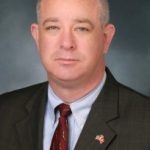New survey shows rural Pennsylvanians face lack of mental health care

A new survey of residents in rural parts of the United States, including rural Pennsylvania, shows many face challenges in accessing mental health care and treatment.
The data from Russell Research was conducted on behalf of Rural Minds, a national nonprofit organization focused on advocating for rural mental health equity. The survey questioned 1,500 people living in a rural county in either Pennsylvania, North Carolina or Florida about the barriers they face in accessing treatment and attitudes about efforts to increase access to care. Findings based on interviews with 500 Pennsylvania residents show:
– Eighty-one percent of Pennsylvania respondents have one or more barriers to accessing health care and mental health treatments, including high out-of-pocket costs, a shortage of physicians, psychiatrists and psychologists, poor to nonexistent internet service, long distances to medical services; self-imposed barriers include a cultural reluctance to ask for help, a lack of trust, and isolation.
– Forty-seven percent of Pennsylvania residents are unaware of programs that can help such as the Medicare Prescription Drug Plan or patient assistance programs offered by pharmaceutical companies.
– Eighty-seven percent of rural Pennsylvania residents would prefer to pick up medicines at their local pharmacy rather than at a doctor’s office, yet many are unfamiliar with legislative efforts to advance such conveniences.
– Ninety-five percent of Pennsylvania respondents believe it is important for policymakers to encourage greater access to medicines that treat mental illness.
– Sixty-two percent are unfamiliar with the impact that policymakers’ decisions have on development of new mental health treatments.
Rural Minds’ mission is to focus on mental health in rural communities. “That’s 46 million people across the country,” says Don Hannaford, Vice President for Public Policy with Rural Minds. “We provide resources, partnerships, access to information and ways to be able to elevate mental health above the stigma level that you see in a lot of rural communities.”
Hannaford says that in many rural communities, the prevailing thought is that you’re supposed to just soldier on through difficulties, even ones affecting mental health.
“Fortunately, that is changing over time, but it’s still a huge issue,” he adds. The U.S. Centers for Disease Control data shows suicide rates among people living in rural areas are 64 to 68% higher compared to people living in large urban areas.
“When you layer onto that, the challenges in resources, there are not nearly enough psychotherapists and psychiatrists in rural America.”
He says one helpful strategy would be telehealth to allow rural patients access to counselors and doctors no matter how far away they are.
“Actually, there have been a lot of problems with that, not the least of which is 30% of rural America doesn’t have broadband (internet access). So, it’s a little tougher to do that. Where it’s available, it is very helpful.”
Initial consultations that are in-person or at least with a video connection are more helpful, but he acknowledges some work can be done by telephone. Another big challenge is a huge shortage of mental health professionals in rural America.
“It’s much worse than in the urban areas, and it’s much worse than most other specialties,” says Hannaford. “So, it’s a real challenge. When we did the survey, we’re trying to identify what were some of the most significant barriers to being able to access mental health, and that was one of them.”
Rural Minds’ research in Pennsylvania also showed that people surveyed prefer to be able to pick up medication from a pharmacy rather than having to make an appointment to see a doctor to get treatment with medication in the office. Rural Minds is advocating for passage of the Epic Act, which aims to even out the time before government reviews for price negotiations on drugs, benefiting small-molecule drugs (basically medicine in pill form), which is crucial for mental health treatment. The act has bipartisan support but faces delays due to the recent reconciliation bill.
“The government will look at certain drugs and negotiate with the drug companies and try to bring the cost of drugs down,” explains Hannaford. “Within this measure, what they call small-molecule drugs … would get nine years before they were evaluated for lowering the cost, but biologics would get 13 years. The fact of the matter is small-molecule pills are better for treating mental illness.”
Hannaford goes on to say that evening the time that all drugs have to be lower priced would better incentivize drug companies to develop them in pill form, which is both cheaper and easier for patients.
“The Epic Act is a positive for the development of more mental health therapies by evening up the amount of time and removing what they call the bill penalty,” says Hannaford. “In rural areas, there are all the other challenges that people face in getting things in mental health, which are, frankly, far worse than anything you find in suburban or urban areas. And this at least claws back a little bit more access and availability.”
As for increasing access to mental health treatment in rural areas, Hannaford says the focus has to be on better ways for patients to find care.
“If you put a focus on mental health therapy and had that available, like telehealth, that could bridge a lot of gaps, because a lot of mental health therapy or mental health treatment is through contact with a therapist,” says Hannaford. “Some of it comes from a medicine, but there’s also a lot of it that comes with contact with a therapist.”
For more information on Rural Minds and the survey results, visit www.ruralminds.org.

